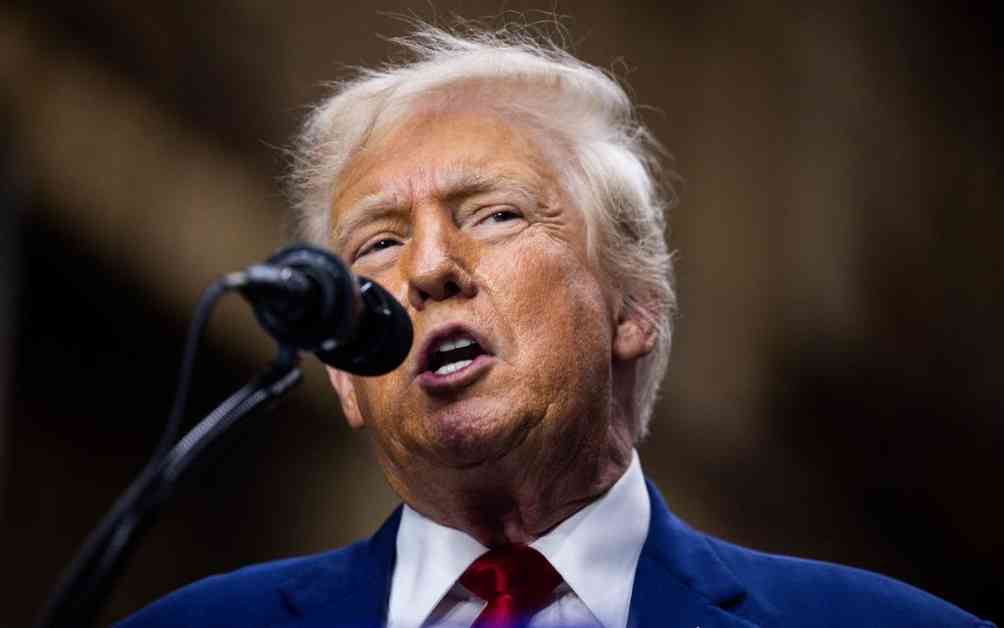Trump Posts Fake Taylor Swift Endorsement
In a surprising move on social media, former President Donald Trump recently shared a fake image of pop star Taylor Swift endorsing him for the upcoming election. The image, posted on Trump’s Truth Social account, showed Swift dressed in patriotic colors with a caption claiming she wanted people to vote for Trump. Trump enthusiastically responded to the fake endorsement, writing, “I accept!”
It is important to note that Taylor Swift has not publicly endorsed any candidate for the 2024 election. In the past, she has shown support for Democratic candidates, including President Joe Biden and Vice President Kamala Harris during the 2020 election. In a documentary released that same year, Swift openly criticized Trump, making it unlikely that she would endorse him in any capacity.
Swifties for Trump Movement
Following the fake endorsement post, Trump also shared photos of young women wearing “Swifties for Trump” shirts and a satirical article with the headline “Swifties Turning to Trump After ISIS Foiled Taylor Swift Concert.” The article was labeled as satire, but many were quick to point out the misleading nature of the content.
A Trump campaign spokesperson, Steven Cheung, defended the Swift-related posts, claiming that the “Swifties for Trump” movement was gaining momentum. However, several Swift fans and watchdog groups raised concerns about the authenticity of the images shared by Trump, suggesting that they may have been created using deepfake technology.
Concerns Over AI Misinformation
The use of artificial intelligence to create misleading content, such as the fake Taylor Swift endorsement, has raised alarms among advocates in various industries. With the rise of deepfake technology, there is a growing need for legislation and other measures to combat the spread of misinformation online.
Consumer group Public Citizen highlighted the dangers of AI-generated misinformation, particularly in the context of elections. They emphasized the potential for such false endorsements to influence public opinion and undermine the democratic process. The group called for greater awareness and regulation to prevent the harmful effects of AI manipulation.
As technology continues to advance, it is crucial for policymakers, tech companies, and the public to remain vigilant against the threats posed by deepfake technology. The integrity of elections and public discourse depends on our ability to discern fact from fiction in an increasingly digital world.
The Impact on Taylor Swift
While Taylor Swift has not directly addressed the fake endorsement posted by Trump, her spokesperson did not respond to requests for comment on the matter. Swift has been vocal about her political views in the past, using her platform to support causes and candidates that align with her values.
The unauthorized use of Swift’s image for political purposes highlights the challenges faced by celebrities in the digital age. With the proliferation of fake news and doctored content, public figures must navigate a complex landscape of misinformation and manipulation.
Despite the controversy surrounding the fake endorsement, Swift continues to focus on her music and creative endeavors. Her dedication to her craft and her commitment to using her voice for positive change serve as a testament to her resilience in the face of adversity.
In conclusion, the fake Taylor Swift endorsement by Trump serves as a stark reminder of the power of misinformation in the digital age. As technology continues to evolve, it is essential for individuals and institutions to remain vigilant against the spread of false information. By staying informed and critically evaluating the content we consume, we can help protect the integrity of our democracy and society as a whole.












